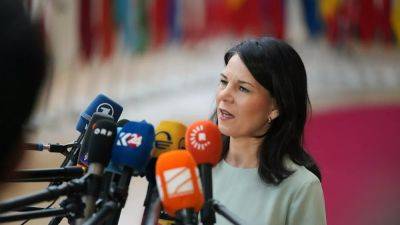Syrian ethnic tensions erupt in deadly clashes, questioning Europe's sanctions lift
Violent clashes broke out last week in the Syrian coastal governorates of Tartus and Latakia between government forces and “non-state armed groups” loyal to the ousted former President Bashar al-Assad.
The two governorates have a high population of Alawites, a minority group from which the al-Assad family hails.
As government forces announced they had "neutralised" the opposition, the independent Syrian Observatory for Human Rights (SOHR) group reported 40 massacres had killed 973 mostly Alawite civilians, as well as hundreds of government fighters.
When Ahmed al-Sharaa toppled the al-Assad regime in December 2024, there was cautious optimism in Syria and Europe alike that the worst was over for the war-torn Middle Eastern country.
Now, some wonder whether welcoming in al-Sharaa — whose Hay'at Tahrir al-Sham (HTS) group was designated as terrorists by the EU — was too much, too soon.
While al-Sharaa has called for calm and peace in the country and formed a committee to investigate the clashes in an apparent attempt at reconciliation, not all of his supporters share his seemingly conciliatory mood — especially from the majority Sunni population, who make up 75% of the country’s citizens.
Mohammed, a former commander in the anti-al-Assad Free Syrian Army whose family were largely wiped out by al-Assad’s regime and is now working for the ministry of defence, didn’t believe the government forces deserved any blame.
“When the remnants (of al-Assad’s forces) took control of cities and villages, in a matter of hours … they started killing and shooting,” he told Euronews.
“These remnants have a history of massacres and killing the Syrian people … for 54 years,” referencing the time the al-Assad family spent in power, starting with








